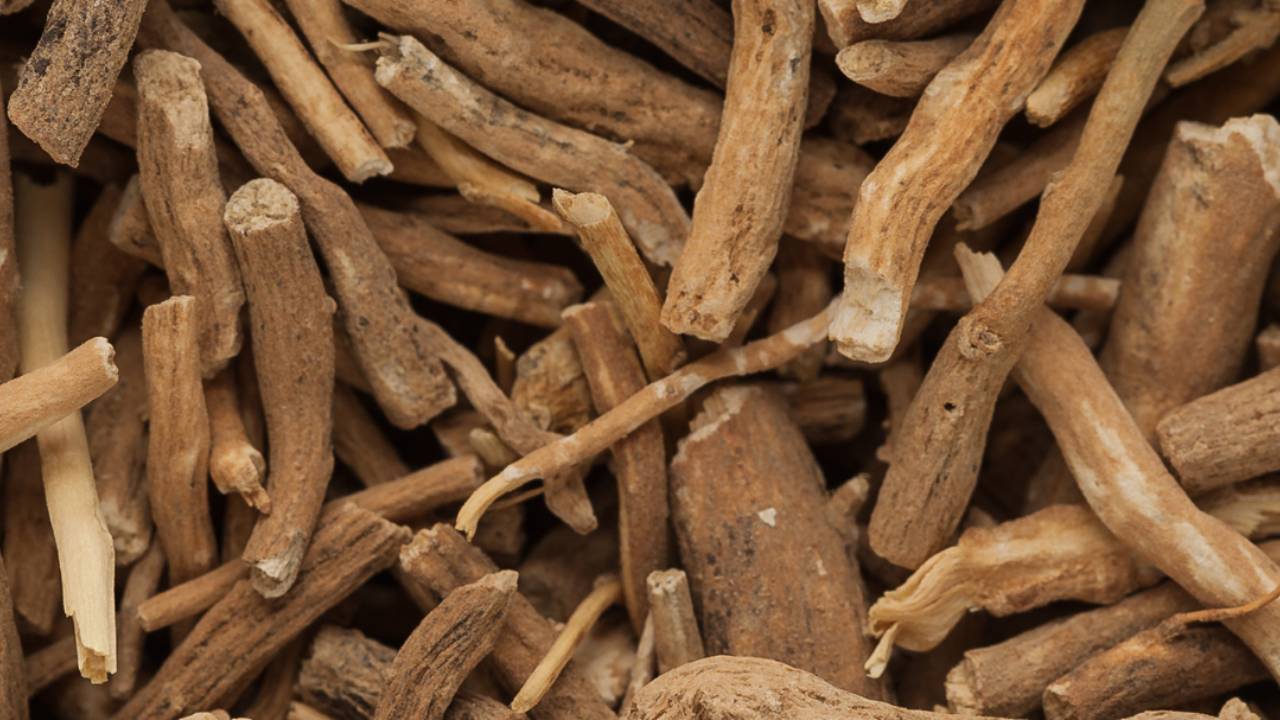
10 Herbs To Use For Stress That REALLY Work
Stress is an unavoidable part of life. As hard as it can be to deal with, our body’s stress reactions are made to protect us. We do that with cortisol.
Your body is designed to handle short bursts of stress with the help of cortisol, a hormone produced by your adrenal glands. Cortisol has gotten a bad reputation recently, but, it’s not the enemy! In fact, cortisol is essential to survive! It plays a crucial role in your body’s stress response, helping regulate blood sugar, metabolism, and inflammation.
But, when chronic stress causes excessive cortisol production over long periods, it can lead to serious side effects—increased blood pressure, weakened immune function, disrupted sleep quality, and even mental health issues like anxiety disorders and depression.
There is no magical herbal remedy that will erase stress from your life, but herbs can be a powerful tool in a holistic approach to managing stress. They work by supporting the nervous system, helping the body adapt to stress, and promoting relaxation. Whether you’re dealing with work-related stress, anxiety symptoms, chronic conditions, or just trying to improve your daily life, these 10 herbs offer a natural way to help manage stress.
Let's Talk About The Herbs
These 10 herbs are the top herbs that support healthy cortisol levels and help you decrease your stress levels. They can be used together or separately and in many different forms.
Skullcap (Scutellaria lateriflora) – The Nervous System Soother
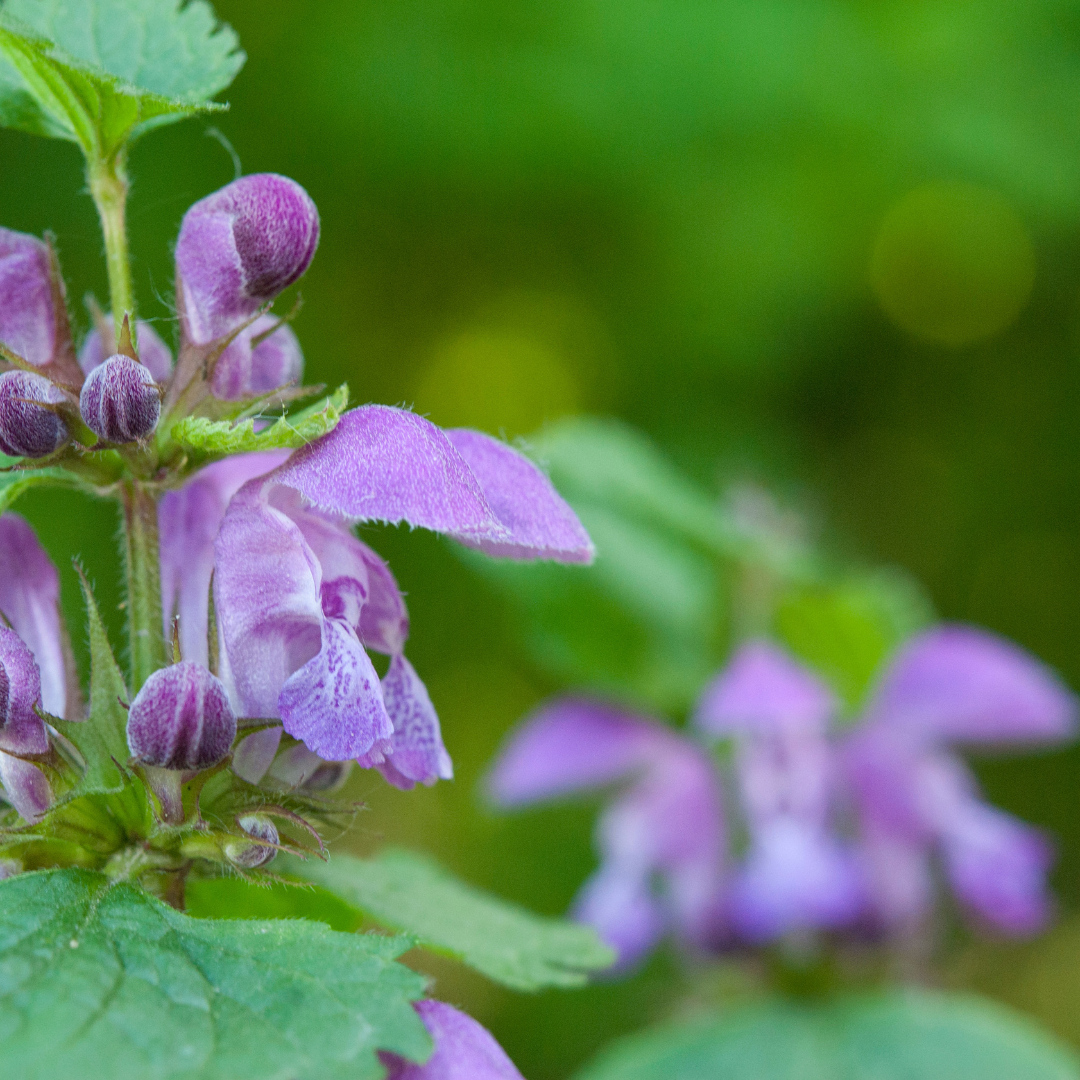
Herbal Properties: Analgesic, antispasmodic, anxiolytic, nervine, and sedative
How It Helps: Skullcap is one of the best herbs to help calm the mind and soothe the spirit. If you are struggling with a racing mind that increases stress levels and increases insomnia, give skullcap a try. It’s a powerhouse for stress relief and has amazing calming effects. This traditionally used herb is known to soothe the nervous system, helping ease symptoms of mild anxiety, and nervous tension caused by stress.
Warnings: Skullcap can increase the effect of drugs that have a sedating effect and may interact with anti-anxiety medications. Avoid high doses and do not take this herb with these medications.
How To Use: It can be used in a tea, tincture, or glycerite. However, if you are using it as a tea, be sure to use it paired with more flavorful herbs like chamomile and lavender.
Ashwagandha (Withania somnifera) – The Adaptogen for Balance
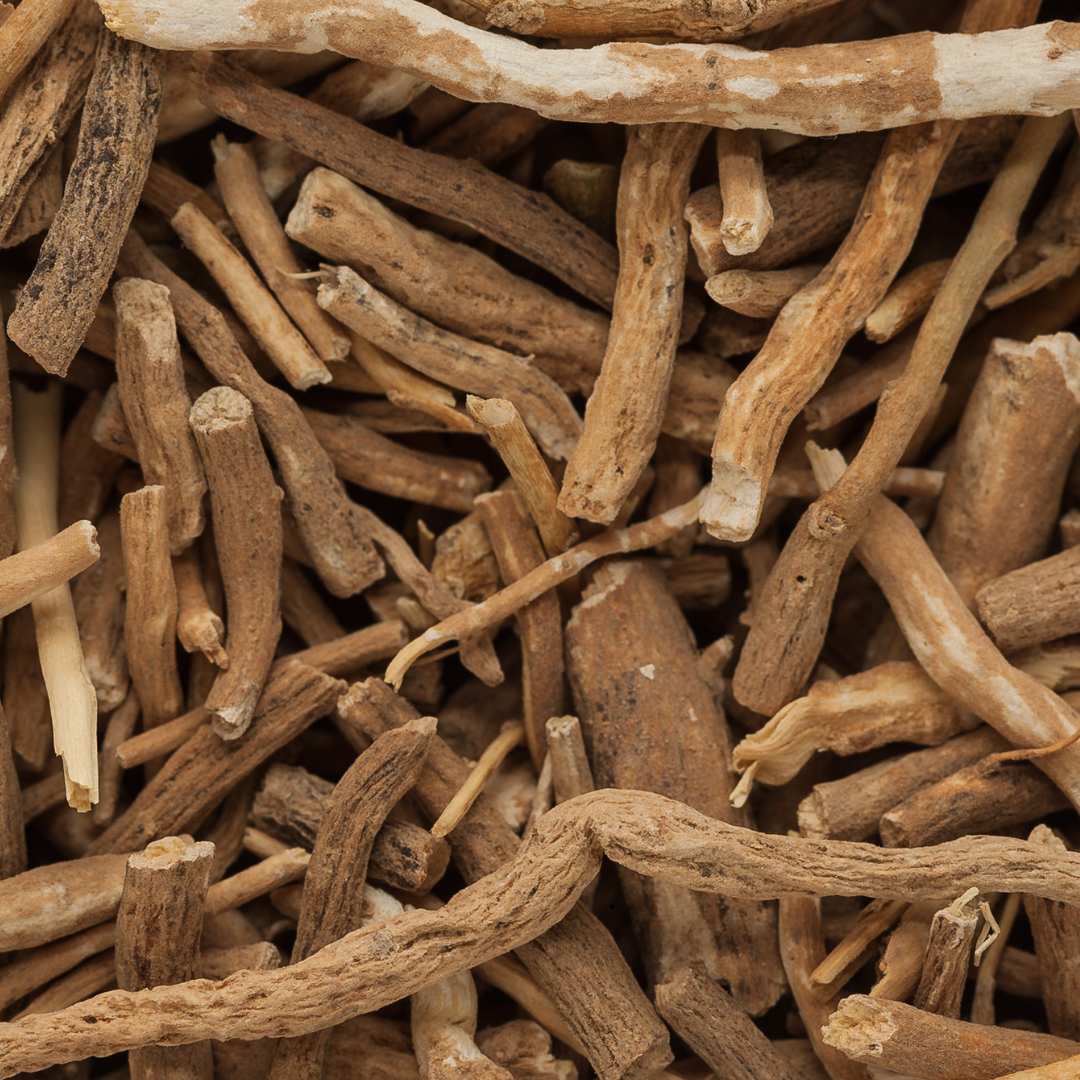
Herbal Properties: Adaptogen, anti-inflammatory, antidepressant, nervine, and neuroprotective
How It Helps: Used in Ayurvedic medicine, ashwagandha is an adaptogenic herb that helps the body regulate cortisol levels and adapt to stressful situations. It supports healthy testosterone function in men, helps with arthritis pain and inflammation, reduces feelings of anxiety, and promotes a sense of calm. Clinical trials have shown that ashwagandha can lower stress levels and improve sleep quality when taken at night before bed.
Warnings: Ashwagandha may interact with mental health medications and thyroid medications. It also may lower blood sugar and blood pressure levels in some people. Check with your healthcare team before using it.
How To Use: Ashwagandha is a very flexible herb that can be used in tincture, gummy, capsule, or tea form. My favorite way to use it is in ashwagandha hot chocolate.
Milky Oats (Avena sativa) – Nourishment for the Nervous System
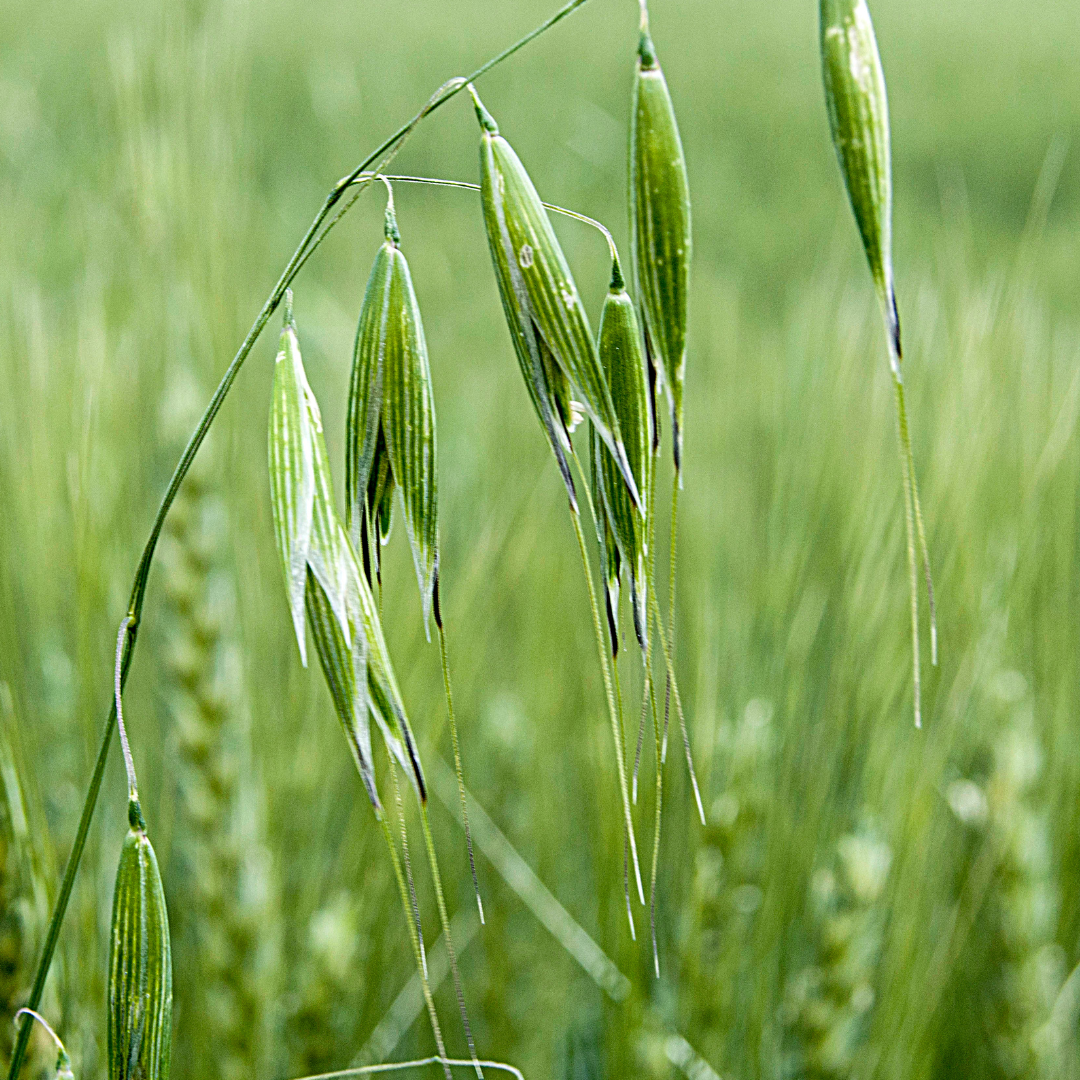
Herbal Properties: Mineralizer, nervine, tonic
How It Helps: Milky oats are one of the best herbs for nourishing the nervous system and restoring physical health after prolonged stress. Rich in B vitamins and fatty acids, this herb helps with mental health conditions, irritability, and cognitive support. If you are experiencing stress that is making you physically and mentally exhausted, look closer at milky oats.
Warnings: No known serious side effects, but those with celiac disease or those with gluten sensitivity should use caution.
How To Use: Milky Oats makes a powerful tincture when made using the fresh herb. It can also be dried and used in a tea either by itself or blended with other herbs.
Tulsi (Ocimum sanctum) – The Queen of Stress Relief
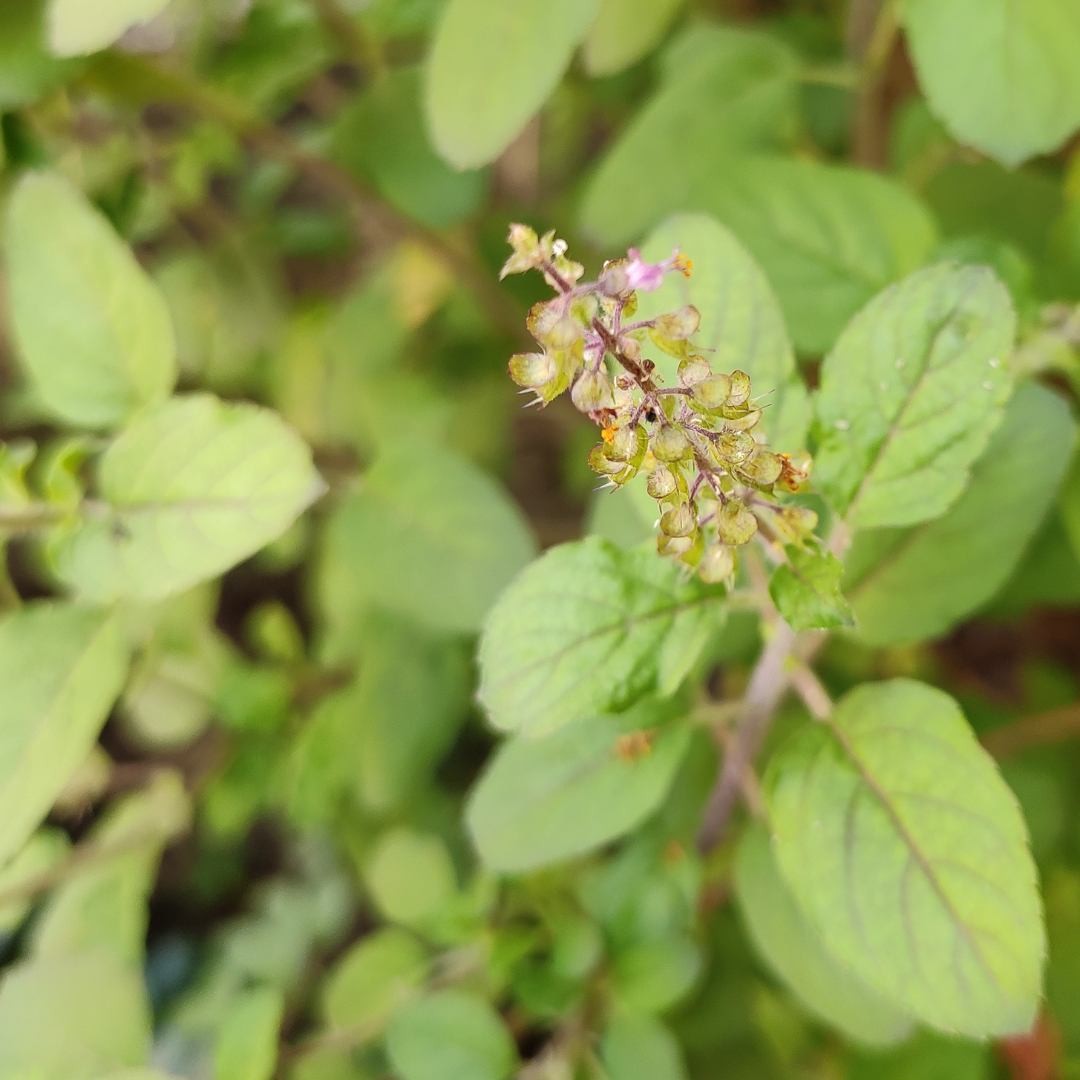
Herbal Properties: Adaptogen, antibacterial, antiviral, carminative, hypotensive, and immune amphoteric
How It Helps: Also known as holy basil, tulsi has been used in Ayurvedic medicine for centuries. It reduces cortisol levels, supports the immune system, and enhances cognitive function. It’s an excellent herb for balancing adrenal glands and promoting mental clarity. It also helps protect the heart from the effects stress can place on it. Symptoms, like increased blood pressure, cholesterol levels, and unstable blood sugars, can be helped with tulsi.
Warnings: Tulsi can slow blood clotting so use it with caution if you are on blood thinners, or have a bleeding disorder.
How To Use: Delicious in tea, and can be used in a tincture too.
Chamomile (Matricaria chamomilla) – The Gentle Calm
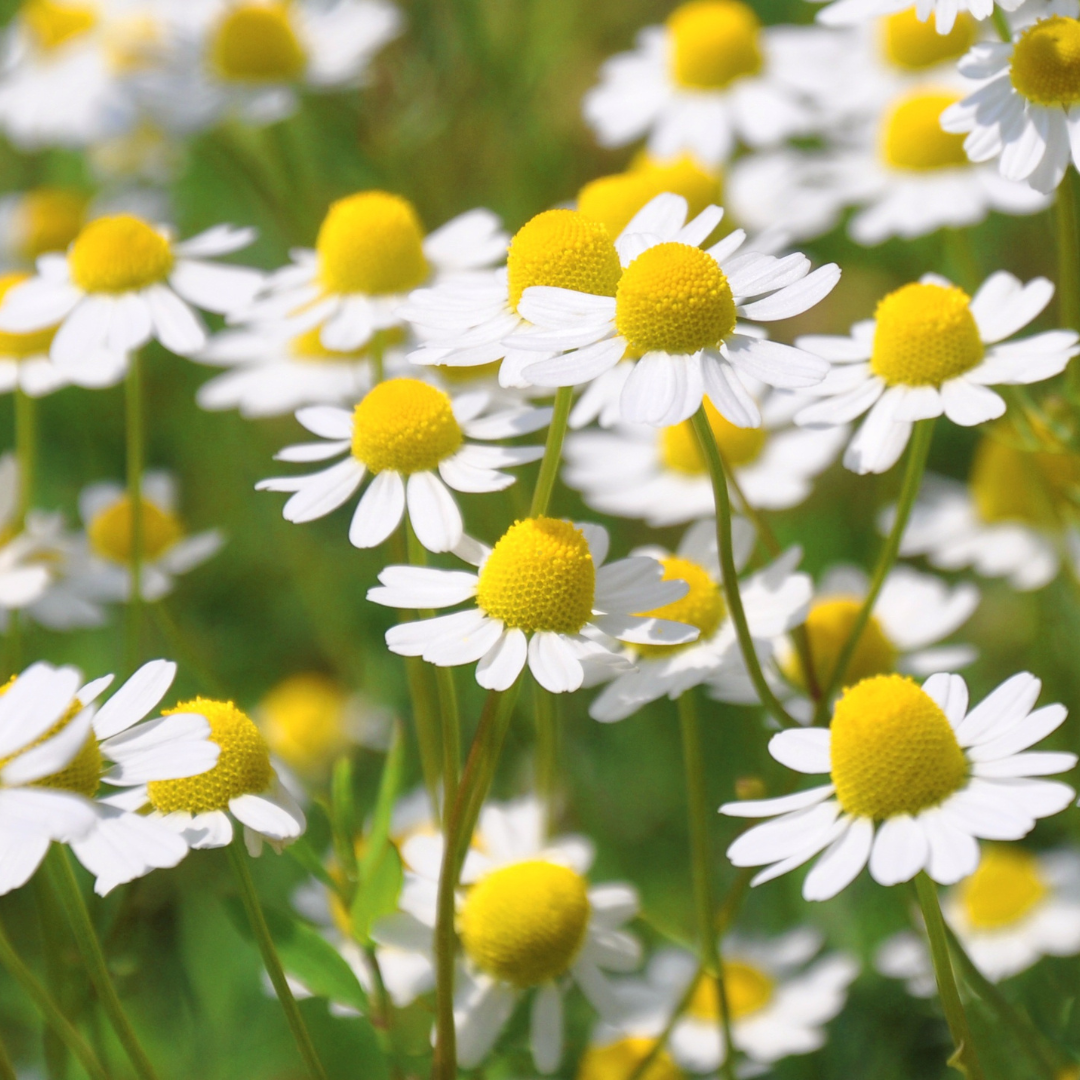
Herbal Properties: Antispasmodic, carminative, digestive tonic, nervine
How It Helps: Chamomile is a classic herbal remedy for anxiety relief, stress, and panic attacks. Chamomile tea helps relax the body, eases digestive issues caused by stress, and promotes sleep and relaxation. It’s wonderful paired with other stress relieving herbs but is also excellent used by itself for children, and those that have a nervous stomach as a stress response.
Warnings: Though interactions are rare, be cautious if you are allergic to plants in the daisy/asteraceae family.
How To Use: Use chamomile in a tea, tincture, or glycerite.
Lemon Balm (Melissa officinalis) – The Mood Lifter
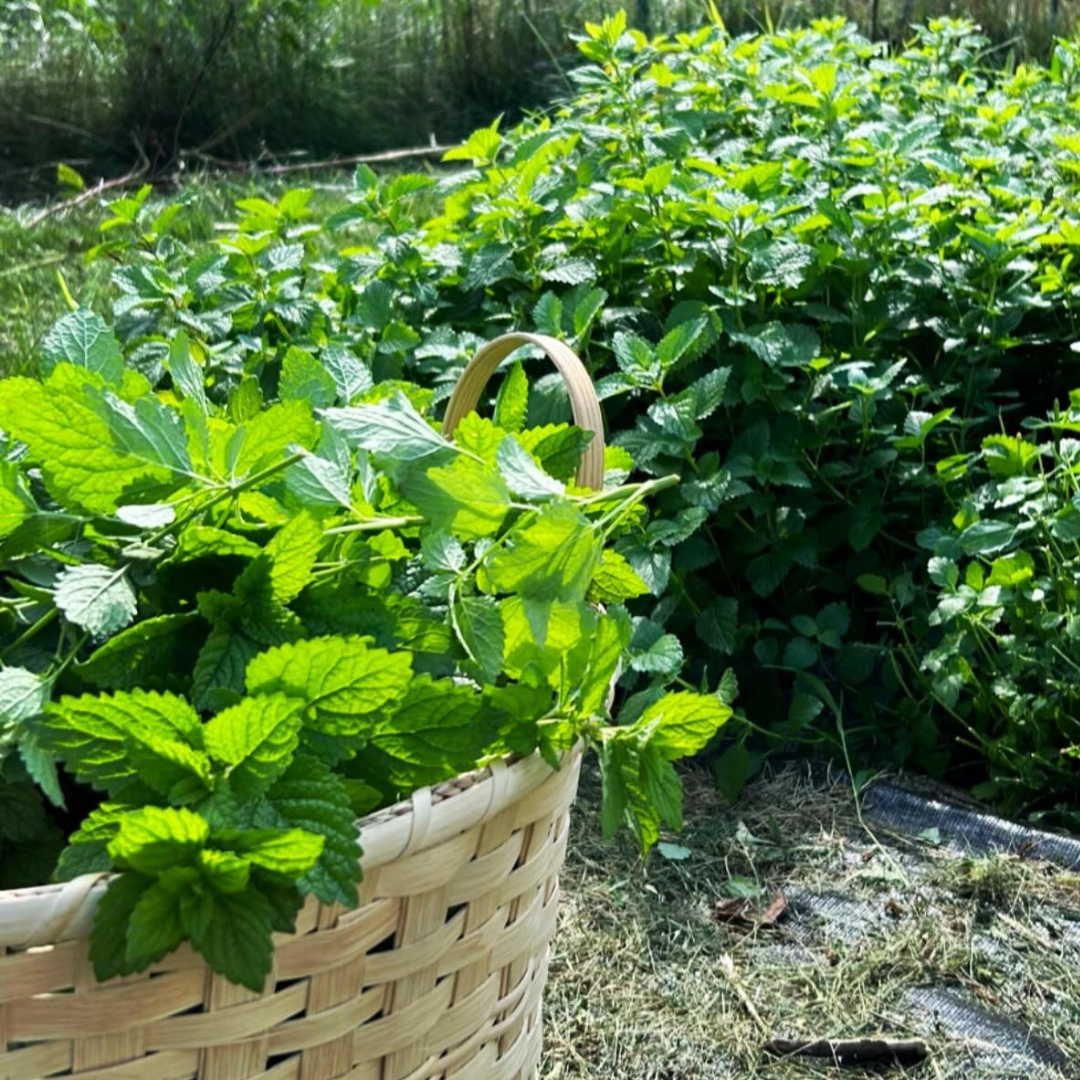
Herbal Properties: Antidepressant, antiseptic, antithyrotropic, antiviral, carminative, nervine
How It Helps: Lemon balm is a powerful yet gentle herb for stress relief. It calms the nervous system, supports healthy cortisol levels, and can reduce symptoms of anxiety. Studies suggest it helps with panic disorder and mild anxiety by promoting relaxation without sedation.
Warnings: May interact with thyroid medications and sedatives.
How To Use: Use in a tea, tincture, or glycerite.
Lavender (Lavandula angustifolia) – The Aromatherapy Powerhouse
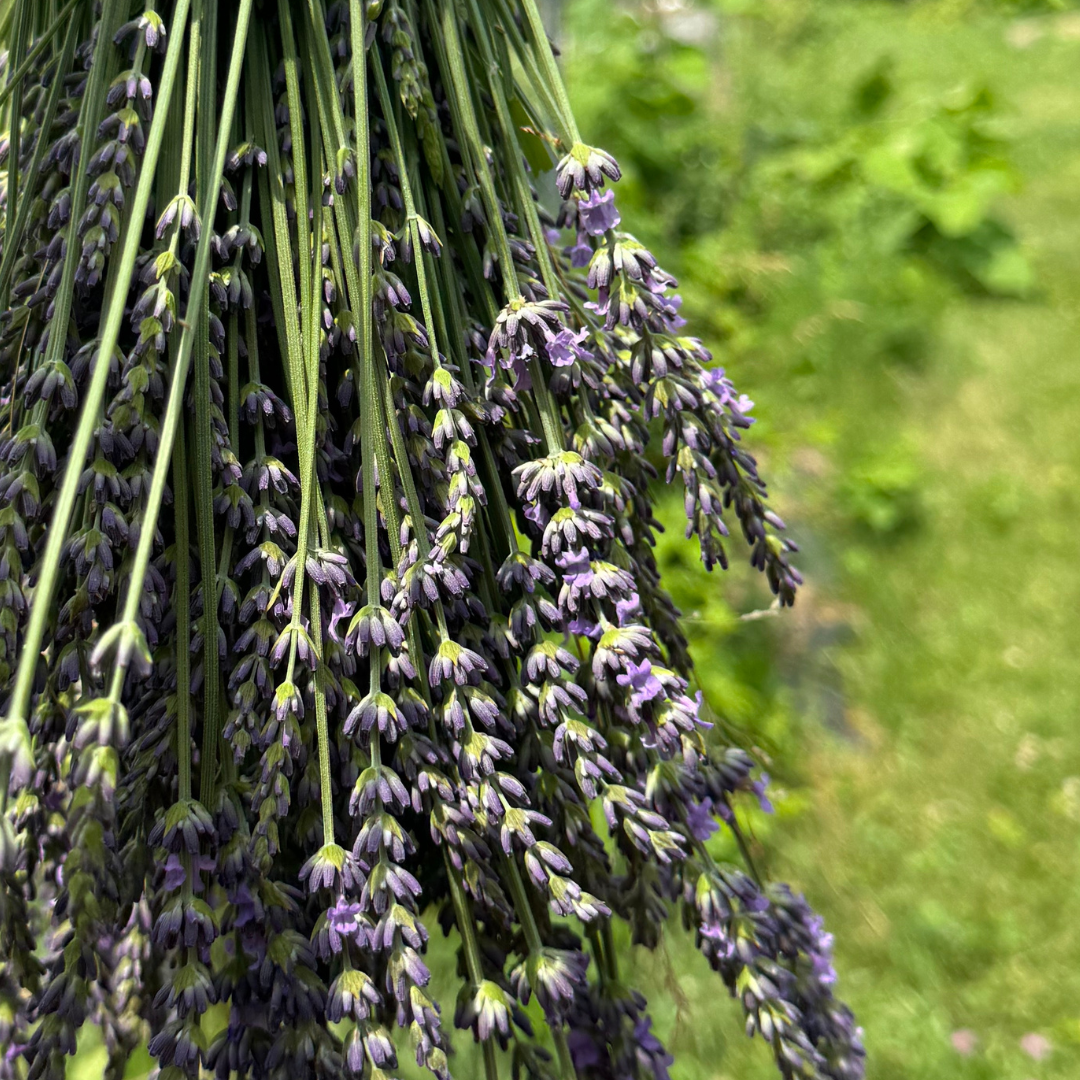
Herbal Properties: Analgesic, antibacterial, antifungal, aromatic, and relaxant.
How It Helps: Lavender essential oil is widely studied for its calming effects. It’s particularly helpful in relaxing people that are high-strung or very “tightly wound”. Lavender can help with stress levels, tension headaches, migraines, and sleep issues as well.
Warnings: Some people may experience skin irritation from the use of essential oils.
How To Use: Use lavender in a tea or as an aromatic experience.
Hops (Humulus lupulus) – The Sleep Supporter
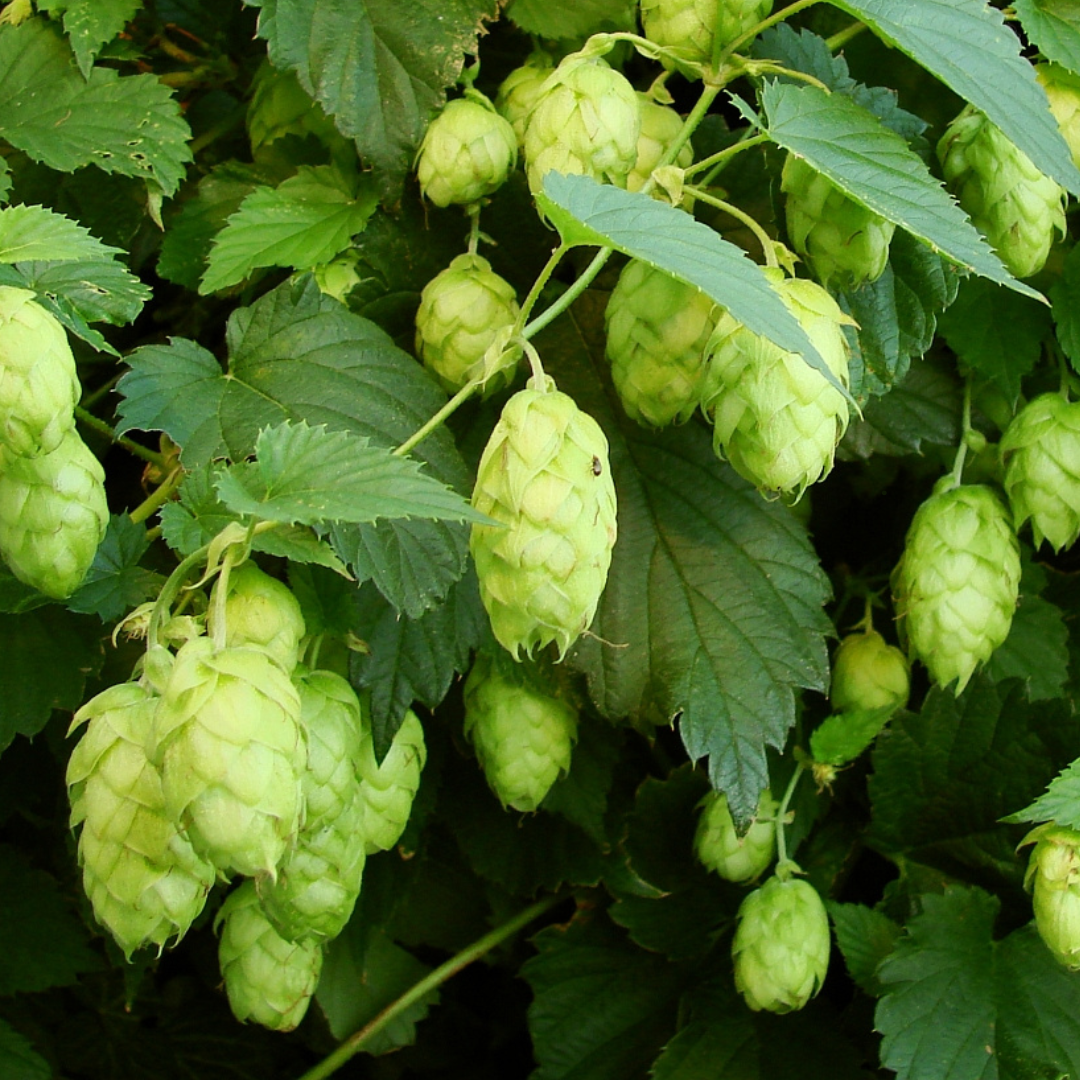
Herbal Properties: Analgesic, antacid, antispasmodic, hypnotic, nervine, phytoestrogen, and sedative.
How It Helps: Hops are commonly used as a powerful sleep aid, helping with severe anxiety, and chronic stress. Its sedative effect makes it one of the best herbal supplements for promoting deep sleep. Especially with people that have a “fiery” personality.
Warnings: Hops should not be used by those with mental health conditions, who are on anti-anxiety or antidepressant medications. It is also not recommended for pregnant women due to its phytoestrogen properties. Not appropriate for children.
How To Use: Hops is best used in a tea or a tincture.
Valerian (Valeriana officinalis) – The Deep Relaxer
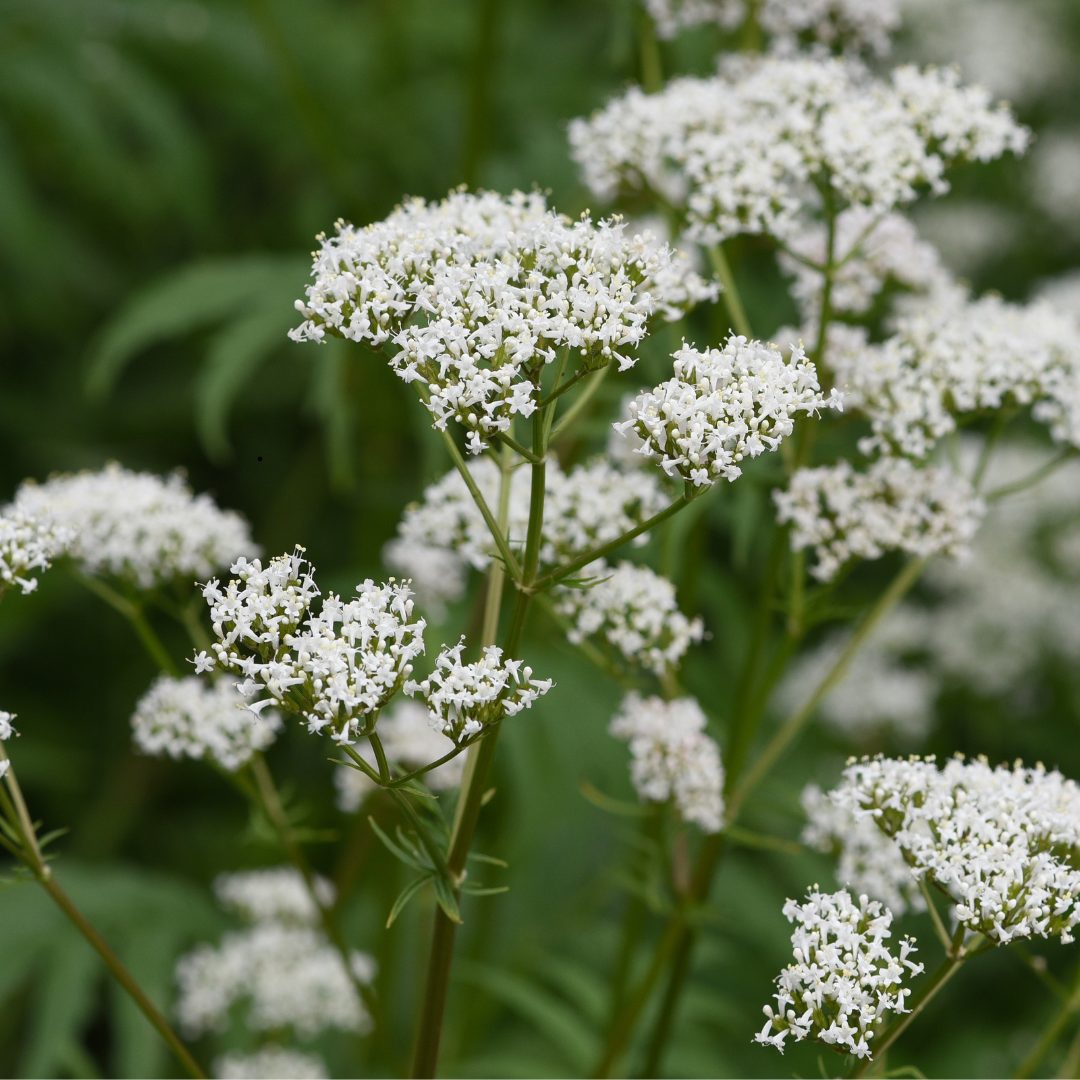
Herbal Properties: Analgesic, antispasmodic, hypnotic, nervine, and sedative.
How It Helps: Valerian root is known for its strong sedative effect and ability to promote sleep quality. It is used as a natural remedy for panic attacks, anxiety disorders, and physical health symptoms caused by stress.
Warnings: Avoid high doses for a long period of time. May interact with prescription medications, including anti-anxiety medications and sedatives. If you are someone who gets angry easily, someone who is “quick to anger”, do not use valerian. Look into passionflower instead.
How To Use: Valerian does not have a very pleasant flavor, so when consuming it in tea, be sure to blend it with flavorful herbs like lavender and chamomile.
Passionflower (Passiflora incarnata) – The Mind Soother
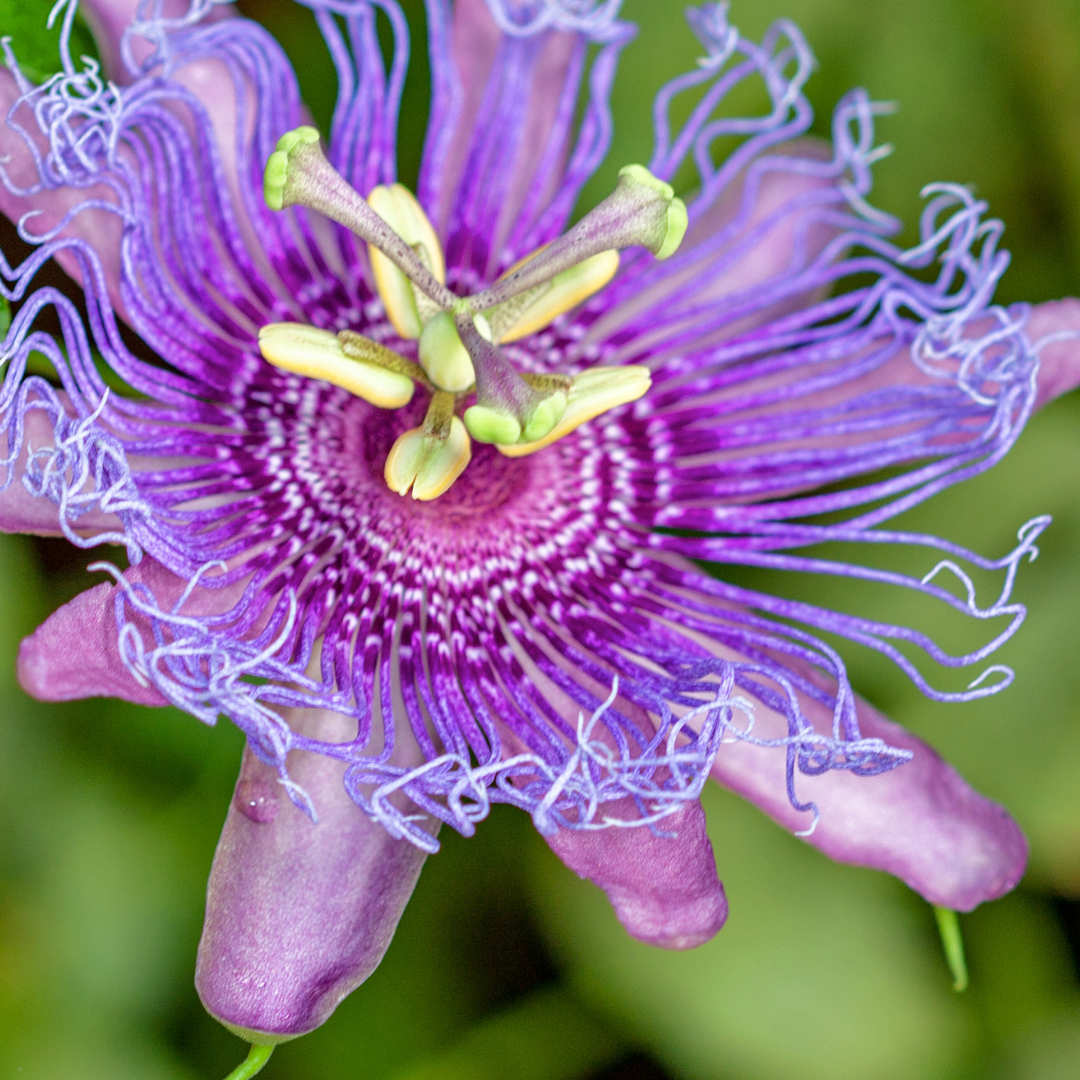
Herbal Properties: Nervine, sedative, relaxant
How It Helps: Passionflower works by increasing GABA (gamma-aminobutyric acid) in the brain, which helps with anxiety relief and calming effects. It’s a great option for those who have racing thoughts that keep them up at night.
Warnings: Avoid if pregnant or taking sedatives. May cause dizziness in high doses.
How To Use: Best in tea, tincture, or glycerite forms.
No herb alone will erase stress from your life. It takes work on your part, and that takes time. But when used as part of a holistic approach, alongside your lifestyle changes and relaxation techniques, these herbs can help give you the support and relief you need.
Which herbs or herb blend have you used that have helped you with stress relief? Let me know in the comments!
Don't miss a thing!
New herbal education and recipes delivered to your inbox.
We hate SPAM. We will never sell your information, for any reason.
Recent Posts
